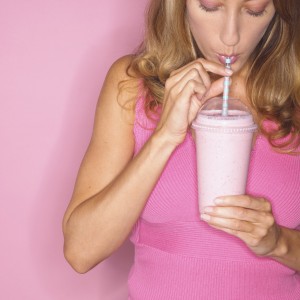 I’ve long thought that there is a finer line between food and drugs than people may think. Now, studies are starting to prove that food cravings are a little more complicated than just being in a weak moment.
I’ve long thought that there is a finer line between food and drugs than people may think. Now, studies are starting to prove that food cravings are a little more complicated than just being in a weak moment.
Researchers are now saying that the reaction to those guilty culinary pleasures is basically the same as how a drug addict reacts when they need a fix.
When experts looked at the brain activity in their subjects when presented with a chocolate milkshake, they found that simply seeing the sweet dessert activated the same parts of the brain as a drug addict who sees cocaine.
If this turns out to be accepted dogma in the scientific community, it could be a complete game-changer in the nutrition world.
“If food cues take on enhanced motivational properties in a manner analogous to drug cues, efforts to change the current food environment may be critical to successful weight loss and prevention efforts,” says a written statement by study experts. “Ubiquitous food advertising and the availability of inexpensive palatable foods may make it extremely difficult to adhere to healthier food choices because the omnipresent food cues trigger the reward system.”
In other words, imagine if cocaine was really cheap and could be bought at Wal-mart.
Previous studies have had similar results. Last year, a study at the Scripps Research Institute in Florida came to the conclusion that overeating high-calorie foods can trigger addiction-like responses in the brain.
Here are a couple more previous studies that we spotlighted in past years:
Sugar as Addictive as Cocaine and Heroin?
Fatty Foods as Addictive as Cocaine, Study Says
(via: The Independent)
